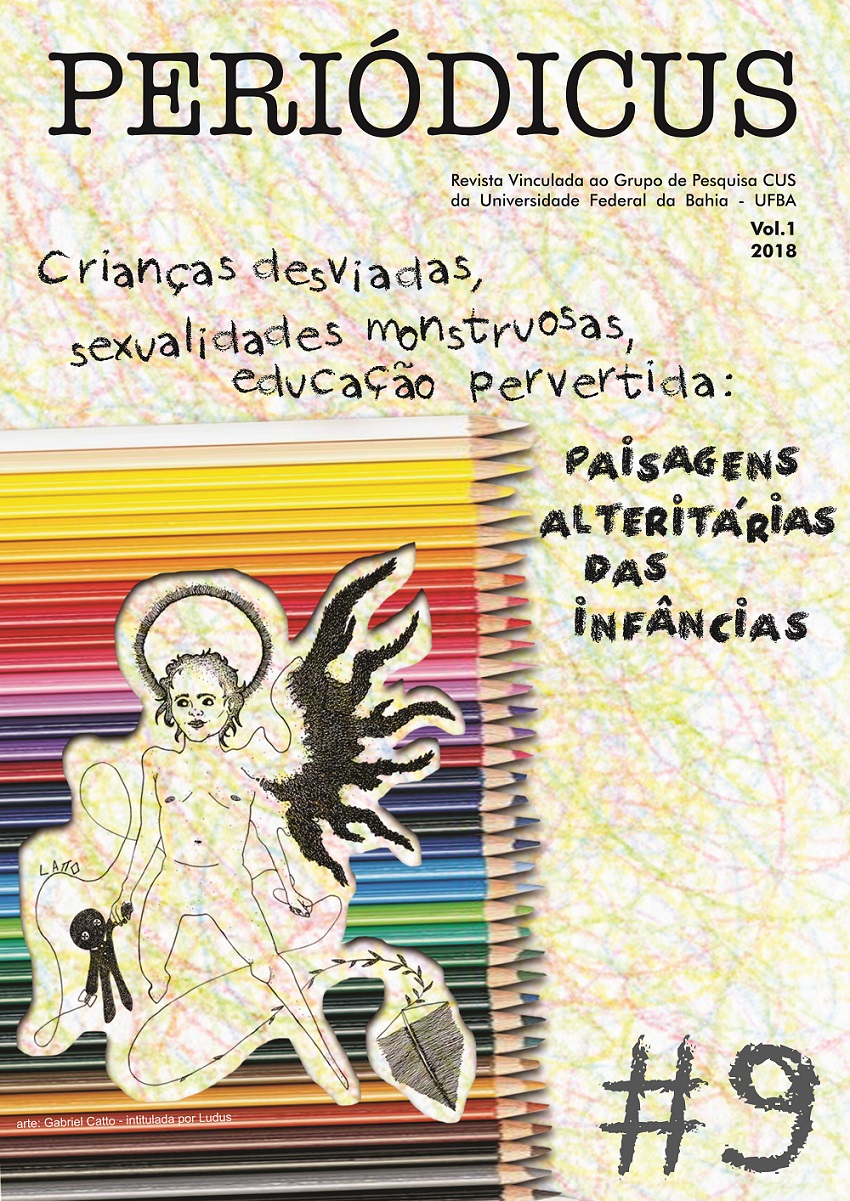Pinóquio e a jornada para tornar-se humano: contos que persistem
DOI:
https://doi.org/10.9771/peri.v1i9.25775Abstract
Era uma vez um pedaço de madeira. O presente texto vale-se da história de Pinóquio, originalmente escrita pelo italiano Carlo Collodi em 1881, para colocar em análise a constituição da infância moderna. Os indóceis corpos de crianças passam por uma jornada de humanização na família nuclear e no estabelecimento escolar, no qual devem atender às regras morais, com o objetivo de serem cidadãos trabalhadores e produtivos no futuro. As peripécias de um boneco de madeira em sua jornada para ser um menino – dito de verdade – apresentam a fragilidade das instituições que teimam em lhe exigir um comportamento normatizado. No final, o objetivo é alcançado, mas o boneco de madeira ainda está lá; ele ri da história linear dos vencedores, questiona as regras do teatro e da escrita, afirma o exercício político de narrar, tensionando os sentidos do que é ser um menino, ser verdadeiro, e ser humano. Em diálogo com a filosofia e a literatura, Pinóquio dirige-nos à ousadia de conversarmos com vidas e existências interrompidas, destruídas e indesejadas, imaginadas por nós, que não as entendemos como improváveis. Aos regimes que querem silenciar, tentemos dizer: era uma vez, e outra, e mais outra.
Downloads
Downloads
Published
How to Cite
Issue
Section
License
Copyright (c) 2018 Revista Periódicus

This work is licensed under a Creative Commons Attribution-NonCommercial 4.0 International License.
Authors who publish in this journal agree to the following terms:
Authors retain copyright and grant the journal the right of first publication, with the work simultaneously licensed under a Creative Commons Attribution Noncommercial License that allows the work to be shared with acknowledgment of authorship and initial publication in this journal, but prohibits commercial use.
Authors are authorized to enter into separate additional contracts for non-exclusive distribution of the version of the work published in this journal (e.g., publishing in an institutional repository or as a book chapter), with acknowledgment of authorship and initial publication in this journal.
Authors are permitted and encouraged to publish and distribute their work online (e.g., in institutional repositories or on their personal website) at any point before or during the editorial process, as this can generate productive changes and increase the impact and citation of the published work (see The Effect of Open Access).








